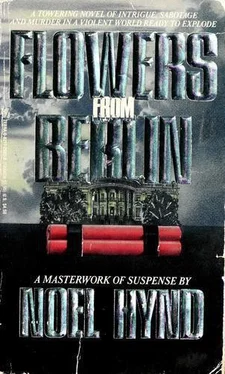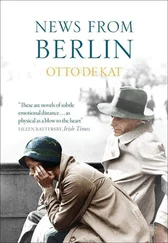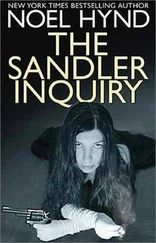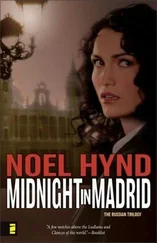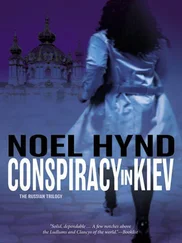Noel Hynd - Flowers From Berlin
Здесь есть возможность читать онлайн «Noel Hynd - Flowers From Berlin» весь текст электронной книги совершенно бесплатно (целиком полную версию без сокращений). В некоторых случаях можно слушать аудио, скачать через торрент в формате fb2 и присутствует краткое содержание. Жанр: Политический детектив, на английском языке. Описание произведения, (предисловие) а так же отзывы посетителей доступны на портале библиотеки ЛибКат.
- Название:Flowers From Berlin
- Автор:
- Жанр:
- Год:неизвестен
- ISBN:нет данных
- Рейтинг книги:3 / 5. Голосов: 1
-
Избранное:Добавить в избранное
- Отзывы:
-
Ваша оценка:
- 60
- 1
- 2
- 3
- 4
- 5
Flowers From Berlin: краткое содержание, описание и аннотация
Предлагаем к чтению аннотацию, описание, краткое содержание или предисловие (зависит от того, что написал сам автор книги «Flowers From Berlin»). Если вы не нашли необходимую информацию о книге — напишите в комментариях, мы постараемся отыскать её.
Flowers From Berlin — читать онлайн бесплатно полную книгу (весь текст) целиком
Ниже представлен текст книги, разбитый по страницам. Система сохранения места последней прочитанной страницы, позволяет с удобством читать онлайн бесплатно книгу «Flowers From Berlin», без необходимости каждый раз заново искать на чём Вы остановились. Поставьте закладку, и сможете в любой момент перейти на страницу, на которой закончили чтение.
Интервал:
Закладка:
He went to a telephone and dialed a number in Murray Hill. Siegfried pictured the small apartment in the East Thirties where the number rang. He envisioned the dark-haired woman sleeping in her bed, rising and walking into her living room. Then she answered.
Siegfried gave her a moment to emerge from sleep. "I'm in town for a few hours," he said softly. "But only a few hours."
The woman's name was Charlotte. She recognized the voice of a man she knew to be Mr. Bolton, a manufacturer of inexpensive clocks and timepieces in Meriden, Connecticut. She also knew him to be a wayward husband.
"Tell me, sugar," she said, running a hand through her brown hair, "What do you do earlier in the evenings? Whenever my phone rings past two A.M. it's only one person. You."
"I missed my connecting train back from Atlanta," he said amiably. "But does that mean I should miss my fun?"
"I'll be waiting."
Charlotte lit a cigarette and straightened the three compact rooms of her apartment. Then she took off her night gown, showered quickly, perfumed herself, and changed into a lavender peignoir.
Men, Charlotte knew, had their likes and dislikes. A man's request varied little from one visit to the next. In the five years that she had supported herself in this way, the five years since the collapse of her second marriage, men had ceased to be much of a mystery. They came to her for what they did not get at home. She would serve them and make them comfortable. And Mr. Bolton, her clock manufacturer, was one of her more desirable customers, she thought as she finished with her eyeliner. A true gentleman. A man of breeding, if she was any judge. She looked in the mirror and entertained an idle thought about him. He was exactly the type of man, she had thought many times, that if she were to, well, remarry… But she quickly dismissed the notion. No use entertaining the impossible. Besides, her buzzer had just rung.
She kissed the spy on the lips when he stepped through the door. Mr. Bolton had his routine, just like her dozen other regulars. He never went into her bedroom. She led him to the armchair in the living room. She poured him a scotch and water. She let him sit down and relax. He spoke for many minutes on the state of the clock business-meaningless garble to her. But she did not know a single businessman who did not pour out his professional problems before he could fully relax. The doctors, she had observed long ago, were different. They wanted to be in and out in a few minutes.
Mr. Bolton talked of main springs and timing mechanisms and of contracts filled and unfulfilled. He said he was depressed about the nature of the world. America was headed for another war, he feared, and while a mobilization might make him rich making inexpensive watches, he grieved at the prospect of being a war profiteer.
"What do you think about Roosevelt?" he asked her. "Do you think he'll get us into the war?"
"He says he hates war," she answered, surprised at being asked her opinion on anything.
She stifled a mild yawn, but he caught her. Then he looked at her differently. "I know you're sleepy," he said. "You're very kind to entertain me at this hour."
He withdrew his wallet and counted out twenty-five dollars.
"A girl has to keep her boyfriend happy," she answered soothingly. She watched him fold the money and place it on an end table.
"Business gets a man all tensed up," she continued. "He can't sleep. A real man has to let go sometimes."
He nodded. She moved closer to him and sat down on the arm of his chair. He smiled and let her lean down to kiss him. He slipped his arm around her waist. Then she let her peignoir tumble open so that he could see her. His hand was within the peignoir a moment later.
"I think this would be the perfect time," he said.
She let her clothing slide away completely, then she helped him undress. He reclined in the chair, relaxing completely. She knelt before him. She knew what Mr. Bolton liked.
"You're very kind," he said as she began. "And very gentle."
Men were so predictable, Charlotte thought. Their impulses were so simple. And her Mr. Bolton was not a difficult man to please. Why did not his wife do the few extra things he asked? What, she wondered, was wrong with his wife, anyway?
It was past seven when Siegfried returned to Pennsylvania Station. The waiting room and grand lobby were coming alive with the earliest of the daily commuters. Siegfried studied the dowdy weariness of the men and women who passed this way each morning. He shuddered.
At a Union News stand, Siegfried bought a Herald-Tribune from a man who appeared to be blind. Then Siegfried walked to Gate 15, where the Lackawanna Railroad's first train of the day would take him through northern New Jersey to his home.
"Morning, sir," said a cheerful conductor, recognizing him from many previous trips. Siegfried fumbled for his ticket. "Never remember where I put the thing," he muttered absentmindedly. Then he found it.
"Here we are, Jeffrey," he said, calling the familiar conductor by his name. He handed the man his ticket. "See what the Giants did yesterday?" he asked. "Hubbell was it?"
The conductor's face flashed with surprise. "You bet it was Hubbell!" he said. "One-hitter against the Dodgers. I didn't know you followed baseball, sir."
Siegfried shrugged. "Doesn't everyone?"
He flashed his most gracious smile, took back his canceled ticket so that he could doze on the short train ride, and found a seat at the rear of a NO SMOKING car near the door.
Hubbell, he thought. The Giants, he thought. Baseball. Americans were so dumb, Siegfried mused. So provincial. So naive and so painfully easy to fool. And Siegfried was so expert at preying upon the smallest and most precise details.
The next morning Siegfried examined and opened the small green envelope placed in his hand by Hunsicker. Out rolled a diamond about the size of a peppercorn. For a moment, Siegfried coldly examined the gem. Somewhere in Germany or Amsterdam, Siegfried knew, some Jew's passage out of Germany had probably been purchased with it. Curse the filthy Jews, Siegfried thought. The parasites of the twentieth century! They had brought their persecution upon themselves! But then he closed his hand on the gem.
He traveled to Philadelphia and sold the diamond to a dealer along the 700 block of Sansom Street. Then over the next few days he visited electronics stores at random and acquired the basic parts of a shortwave station. Purchase and assembly would be long, tedious jobs. But he had complete privacy in his home. And he had time.
By July 6 he had completed the receiving unit and had strung a strong copper wire as an antenna. He switched the unit to the ON position and it leaped to life. As he turned to the construction of his transmitter, he listened for hours to the dots, dashes, an indeterminate blips of international Morse code that shot across the shortwave bands. His fluency with code returned as he worked. It became a language to him. Then he completed his transmitter, equipped it to operate off normal house current, and connected it to the same antenna as his receiver. It was July 10.
Now Siegfried turned to his telegraph key. He worked off a dummy transmitting pattern, listening to his own transmission via headphones. When he began he could send approximately ten words a minute. But by July 14, he could send thirty.
He was ready.
The evening was warm on July 15. At 6:55 P.M., the sun was setting. In Hamburg, it was nearing 1 A.M. A perfect time for shortwave reception.
Siegfried sat by the dials of his receiver and counted the minutes. Five. Four. Three. Two. One.
It was seven o'clock. Siegfried's frequency was tightly channeled and his receiver was tuned as sharply as possible, his antenna facing Europe. He waited. He could feel sweat begin to form on his hands and on his back. Then his receiver crackled and his scalp crawled with nearly adolescent excitement.
Читать дальшеИнтервал:
Закладка:
Похожие книги на «Flowers From Berlin»
Представляем Вашему вниманию похожие книги на «Flowers From Berlin» списком для выбора. Мы отобрали схожую по названию и смыслу литературу в надежде предоставить читателям больше вариантов отыскать новые, интересные, ещё непрочитанные произведения.
Обсуждение, отзывы о книге «Flowers From Berlin» и просто собственные мнения читателей. Оставьте ваши комментарии, напишите, что Вы думаете о произведении, его смысле или главных героях. Укажите что конкретно понравилось, а что нет, и почему Вы так считаете.
